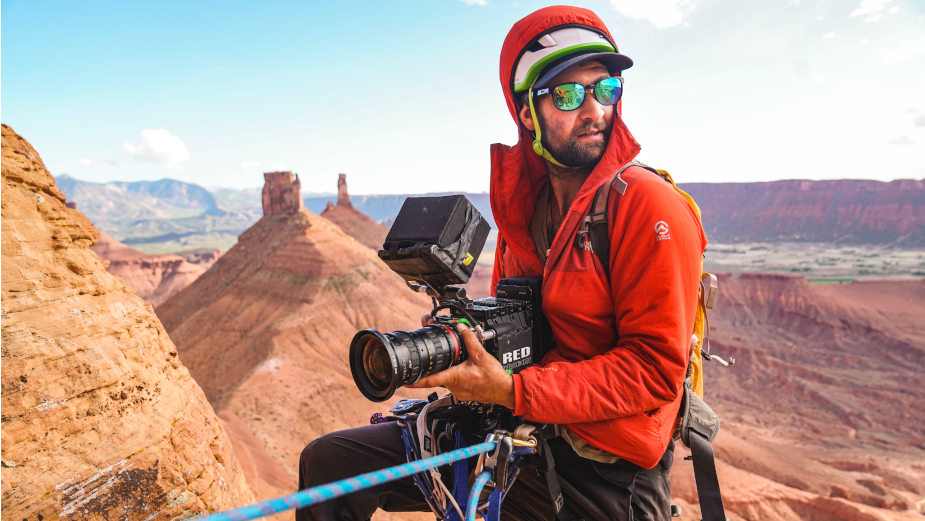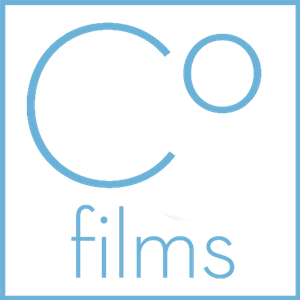
The Directors: Renan Ozturk

Renan lives to tell stories about our connection to the natural world, often set within the most challenging environments on earth. He’s constantly searching for projects that move him - films that have a strong visual identity matched with some deeply compelling human element.
He began his career as an expedition climber and landscape artist, spending years living in a tent beneath the big walls of U.S. National Parks and in the snowy Himalayan mountains. Currently, Renan works as a commercial and documentary filmmaker, an expedition climber for The North Face, and a photojournalist for Sony and National Geographic.
The films he’s made over the years have had a global presence; he’s probably best known for MERU (cinematographer/subject), which won the 2015 Audience Choice Award at Sundance, and the critically acclaimed Sherpa (cinematographer/co-director), which screened at TIFF and Telluride. He’s directed and shot commercial work for major international brands such as Apple, Google, DJI and Nike.
Name: Renan Ozturk
Location: Beverly Hills, CA & Boulder, CO
Repped by: CoMPANY Films
Q > What type of work are you most passionate about - is there a particular genre or subject matter or style you are most drawn to?
Renan Ozturk > I started out more in the outdoor world, but now I’m transitioning more into pieces that have a really strong sense of connection to people and groups. I enjoy marrying unique communities with extraordinary places and finding the emotional kernel of the individual stories that come out of that - whether that is through commercials or personal work.
Q > What elements of a script sets one apart from the other and what sort of scripts get you excited to shoot them?
Renan > For me, the ideal scripts have the alchemy of people and a strong sense of the environment - whether interior or exterior. I also find great value in the opportunity to take a 360 approach. To really find a way to combine multiple techniques - voice over, on camera dialogue, visuals, camera technology, colour - to make people feel. To not just watch but experience. So those are the kind of scripts that tend to speak to me.
Q > How do you approach creating a treatment for a spot?
Renan > There’s the mechanical side of it where you have to sit down and dive into the writing. I tend to really go full bore; deep into my decks, putting a lot of time into the visuals and the writing. I think its really important to convey individual style. People don't want to hear how you're shooting 4K versus 8K but instead, how you are going to get the overall idea across and capture emotion? By the time I get to the end of a treatment, whether I get the job or not, I want to feel proud of it as a work of art unto itself. It can be a really satisfying, fun, creative process that teaches you a lot.
Q > Your work is now presented in so many different formats – how have all these artistic outlets informed your spot work? How has that led to some kind of foundation for how you approach story telling?
Renan > I think the more well-rounded you are, and the more places and people you've come to connect with and listen to and understand, the more empathetic you can be. And the more vulnerable you can be as a director. That vulnerability brings out the best work - not only with your on-camera talent, but with the rest of your team. Just being open and transparent with everyone on set – or on the calls beforehand – is important to me. When things get sticky, I find myself bringing back moments I’ve had deep in the Himalayas with the eldest Sherpa in the Everest community or way out in the Sahara Desert of Chad, where you don't even speak the language, but you’ve managed to find common ground. It’s good to incorporate some of those lessons of empathy in all working relationships.
Q > If the script is for a brand that you're not familiar with/ don’t have a big affinity with or a market you're new to, how important is it for you to do research and understand that strategic and contextual side of the ad? If it’s important to you, how do you do it?
Renan > Yes, that kind of research is critical. Understanding not just the surface visuals of a brand but the community behind it. As a doc director, you have to learn about communities that aren't your own and find a way to relate to its members in an authentic way. It’s a great opportunity to expand your knowledge of the world and come into a project with fresh eyes. It’s really important to be able to do that community right; both staying authentic while finding a special approach that is easily adopted. In that way, you can do the community, their own brand and ethos, really proud.
Q > What’s your relationship with new technology and, if at all, how do you incorporate future-facing tech into your work (e.g. virtual production, interactive storytelling, AI / data-driven visuals etc)?
Renan > That’s a big part of the game for me, being a huge drone and camera nerd. I work really closely with a lot of artist-technicians. It’s always a careful balance between technology and story. I tend to work with different brands like Sony and Red and always have enjoyed experimenting with tech that is a little bit outside the box. In a project I have coming out this spring, we flew a drone higher than they’ve ever gone, over Mount Everest. When I’m free soloing, I’m using remote figure camera technology and it’s all really exciting.
Q > For you, what is the most important working relationship for a director to have with another person in making an ad? And why?
Renan > I think filmmaking in general is a huge team sport and you have to go in with that mindset. In my work you’re often placing your life in someone else’s hands – and vice versa. You treat everyone - agency, client, crew member - with respect. A lot of my projects are based on these personal, lifelong relationships with talent, both in front of and behind the lens. Those are very important to me and for my work, specifically.
Q > What misconception about you or your work do you most often encounter and why is it wrong?
Renan > I mean, other than the fact that if you're a professional climber, all you do is climb Mount Everest. And the idea that most people that try, actually succeed. [laughs] Beyond that, a lot of the work that that we have done comes from the niche outdoor counter cultures like climbing, paragliding, base jumping, slack lining, etc. I think what is commonly missed is the 'genuineness' aspect of these communities. Once you get to know these athletes, you discover this soft, soulful underbelly that is really, really powerful and even more compelling than the wild adventure itself.
I would hope people see that my work is more than capturing the outward beauty and awe of standing on top of a summit. It’s also about what drives these achievements from a personal, emotional side. On both sides of the camera. That’s the message I hope my work conveys.
Q > Which pieces of work do you feel really show off what you do best – and why?
Renan > Projects where there is an opportunity to collaborate with like-minded people who care deeply about the work and each other’s contribution, is where the end result has been the most gratifying for all involved: the production, the agency and the client. It’s also some of the work I’m most proud of….for now!
Honda and Ram were both an opportunity to tell stories on a grand scale against stunning natural backdrops. Apple is well, Apple, and it was a dream to bring my National Geographic experience and passion for the environment into the mix. West VA was fun to play on the technical side, both on set and in post.
- Honda
- Ram
- Apple
- West Virginia Tourism













